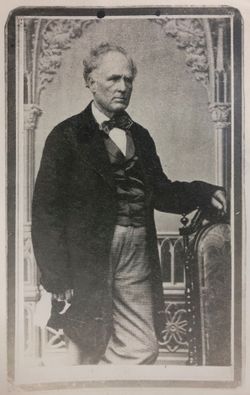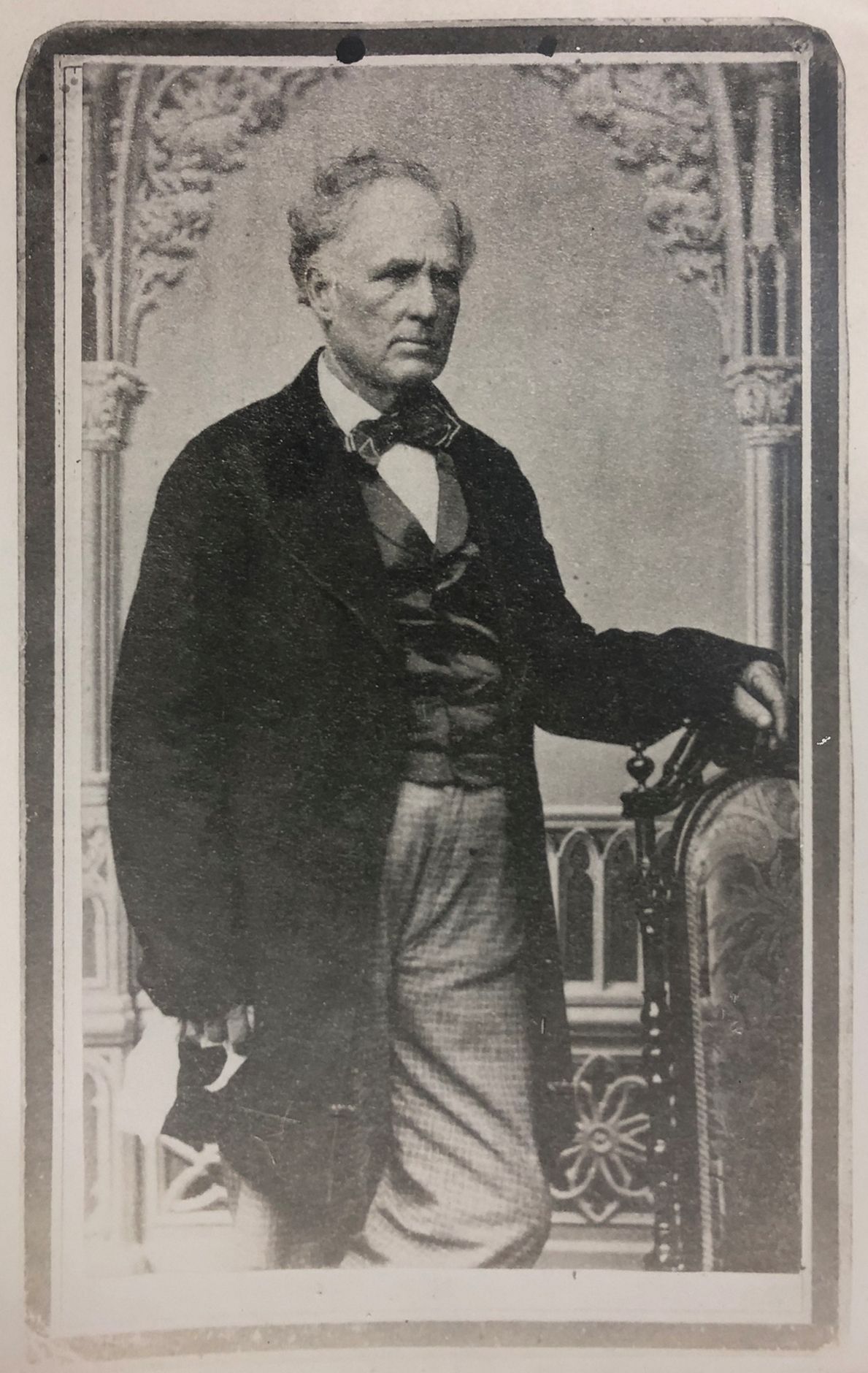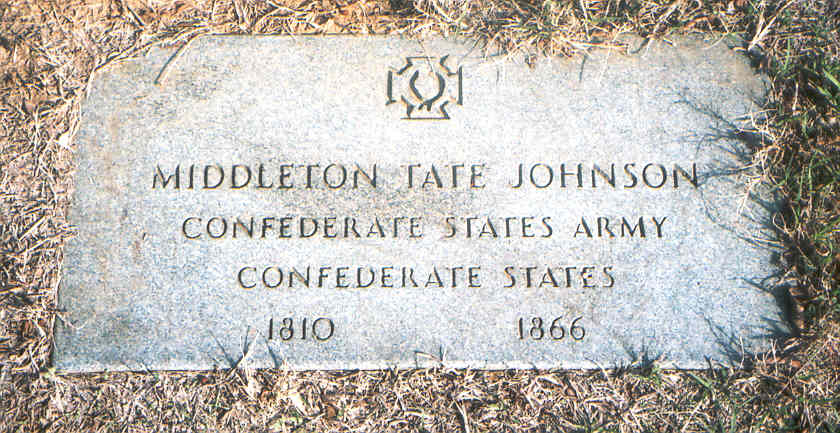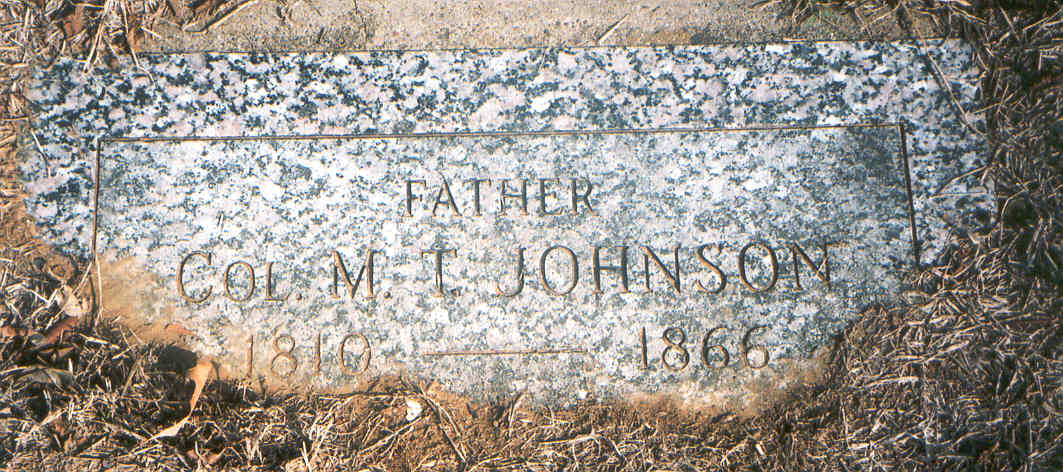~~~~~~~~~~~~~~~~~~~~~~~~~~~~~~~~~~
Suggested edit:
Middleton T. Johnson was born in South Carolina in 1815, came to Texas in 1839 and located in Shelby County. He represented that county in the last Congress of the Republic of Texas in 1845. At the commencement of the United States-Mexican War he volunteered as a soldier in the United States army and served throughout the war. In 1848 he was elected Lieutenant Colonel of Bell's Regiment of Texas Rangers, and put in command of the district of Red River, which extended far out on the northwestern frontier. He served alternately in the Ranger service and in the Legislature up to 1860. In that year Governor Houston commissioned him to raise a regiment for the ranger service, and he was engaged in that service when elected a delegate to the Secession Convention in 1861. He was then commissioned as a Colonel of a regiment in the Confederate Army and served throughout the Civil War. He returned to Texas in 1865 and was elected a member of the State convention which assembled in February, 1866, and died while a member of that body in March, 1866. ["The History and Geography of Texas as Told in County Names" By Zachary Taylor Fulmore, pub. 1915]
Contributor: Sherry (47010546)
~~~~~~~~~~~~~~~~~~~~~~~~~~~~~~~~~~
Suggested edit:
Middleton T. Johnson was born in South Carolina in 1815, came to Texas in 1839 and located in Shelby County. He represented that county in the last Congress of the Republic of Texas in 1845. At the commencement of the United States-Mexican War he volunteered as a soldier in the United States army and served throughout the war. In 1848 he was elected Lieutenant Colonel of Bell's Regiment of Texas Rangers, and put in command of the district of Red River, which extended far out on the northwestern frontier. He served alternately in the Ranger service and in the Legislature up to 1860. In that year Governor Houston commissioned him to raise a regiment for the ranger service, and he was engaged in that service when elected a delegate to the Secession Convention in 1861. He was then commissioned as a Colonel of a regiment in the Confederate Army and served throughout the Civil War. He returned to Texas in 1865 and was elected a member of the State convention which assembled in February, 1866, and died while a member of that body in March, 1866. ["The History and Geography of Texas as Told in County Names" By Zachary Taylor Fulmore, pub. 1915]
Contributor: Sherry (47010546)
Family Members
Advertisement
Advertisement





















